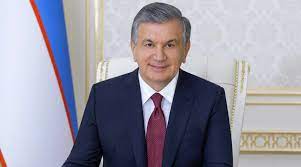
Invoking the “Samarkand spirit” ahead of the Shanghai Cooperation Organisation (SCO) summit to be held on September 14 and 15, Uzbekistan’s President Shavkat Mirziyoyev has said that people of Afghanistan need “good neighbours” and called it a “moral obligation” to extend a helping hand and offer them effective ways of overcoming the years-long crisis.
In an article for The Indian Express published, Mirziyoyev wrote: “Afghanistan that has played for centuries the role of a buffer in the historical confrontations of global and regional powers, should try on a new peaceful mission of connecting Central and South Asia.”
In this context, he said the construction of the “trans-Afghan corridor” could become a symbol of such mutually beneficial inter-regional cooperation. “It is also important to understand that by implementing joint infrastructure projects such as the Termez – Mazar-i-Sharif – Kabul – Peshawar railroad, we are not just solving socio-economic, transport and communication problems, but also making a significant contribution to ensuring regional security,” Mirziyoyev said, in his piece.
“I am full of confidence that it is important and necessary for the SCO to share its success story with Afghanistan. This country is an integral part of the larger SCO space. The Afghan people need good neighbours and their support now more than ever. It is our moral obligation to extend a helping hand, to offer them effective ways of overcoming the years-long crisis by promoting socio-economic growth of the country, its integration into regional and global development processes,” he said.
“By bringing our positions closer to each other, together we can develop a new SCO agenda for a more peaceful, stable and prosperous Afghanistan. Only in this way can we create a truly stable and sustainable SCO space with an indivisible security,” he wrote.
He said: “The basis for the SCO’s international attractiveness is its non-bloc status, openness, non-targeting against third countries or the international organisations, equality and respect for the sovereignty of all participants, refusal to interfere in the internal affairs, as well as prevention of political confrontation and unhealthy rivalry.”
“The SCO’s success concept is the promotion of multifaceted cooperation through ensuring regional security. In fact, the SCO is called upon to become a pole of attraction without dividing lines, in the name of peace, cooperation and progress,” he wrote.
He said, “Uzbekistan’s chairmanship in the SCO has fallen on a dynamic period, fraught with various events and trends – the period of the “historical rift”, when one era comes to an end and another begins – thus far unpredictable and unknown.”
“The modern system of international cooperation, based on the universal principles and norms, begins to falter. One of the main reasons for this is a deep crisis of trust at the global level, which, in turn, provokes a geopolitical confrontation and the risk of reviving the bloc thinking stereotypes. This process of mutual alienation complicates the return of the world economy to its former course of development and the restoration of global supply chains.”
Referring to the war in Ukraine, he said: “The ongoing armed conflicts in the world destabilise trade and investment flows, exacerbate problems of ensuring food and energy security.”
The SCO summit will be attended by PM Narendra Modi, Chinese President Xi Jinping, Russian President Vladimir Putin, Pakistan PM Shehbaz Sharif and Iran’s President Ebrahim Raisi among other leaders.